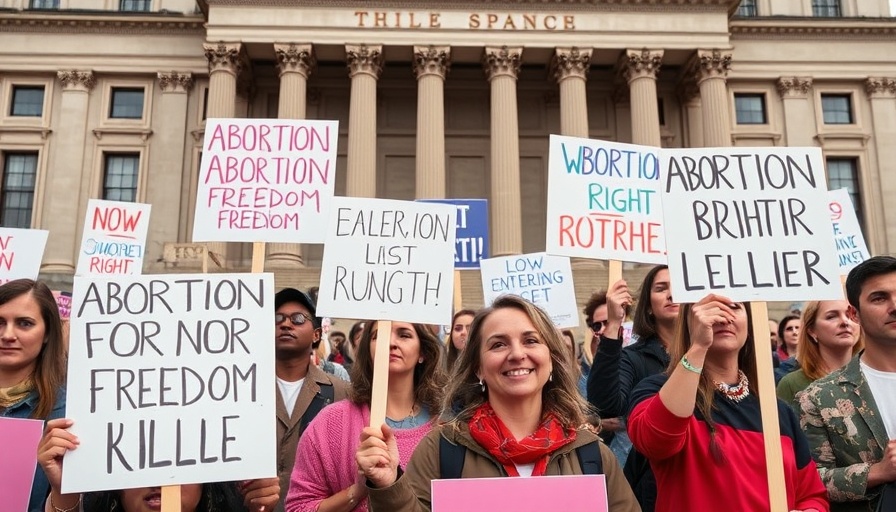
Impact of the DOJ's Lawsuit Withdrawal on Abortion Access in Idaho
In a controversial move, the Justice Department has officially dropped a lawsuit aimed at enforcing emergency access to abortion in Idaho, leaving many concerned about the state’s strict abortion laws. This decision has been viewed as a retreat from federal support during a time of heightened tensions over reproductive rights in the U.S. The Biden-era lawsuit had sought to ensure that hospitals in Idaho would be required to provide emergency abortion care under the Emergency Medical Treatment and Labor Act (EMTALA). Unfortunately, without this protective measure, pregnant individuals facing medical emergencies may find themselves in precarious situations.
The Role of St. Luke’s Health System in Preserving Access
While the DOJ pulls back, Idaho's largest healthcare provider, St. Luke’s Health System, is not backing down. Earlier this year, St. Luke’s separately filed a challenge against Idaho’s restrictive abortion law and has managed to secure a temporary injunction that preserves access to emergency abortions for the time being. This move highlights a grassroots effort to protect reproductive healthcare against state-level restrictions and indicates that healthcare providers in Idaho are willing to challenge the status quo to protect their patients.
What the Legal Landscape Looks Like Post-DOJ Withdrawal
The implications of the DOJ's decision are far-reaching, placing greater responsibility on local initiatives like that of St. Luke’s to navigate the complex legal environment surrounding abortion access. Despite concerns raised by abortion rights advocates about potential consequences for emergency care, the DOJ asserts that this dismissal will not immediately impact access to emergency medical services in Idaho. The landscape remains fraught with tension, as providers grapple with the balance between state laws and federal protections.
Voices from the Frontlines: Advocates Respond
Advocacy groups have been vocal about their disappointment regarding the DOJ's withdrawal, with Nancy Northup, President and CEO of the Center for Reproductive Rights, condemning it as “indefensible.” Her comments reflect a broader sentiment among advocates who view this change as a retreat from necessary protections for pregnant individuals in crisis situations. With Idaho's laws restricting abortion access to only life-threatening circumstances, the lack of federal support could potentially place both patients and providers at risk.
Local Action: Courage in the Face of Restriction
Even as the DOJ steps back, St. Luke's Health System sets a crucial example of local resilience in the fight for reproductive rights, highlighting a critical battle that extends beyond the courtroom. The survival of healthcare access hinges on the willingness of local organizations to challenge state laws head-on. As the legal fight continues, it exemplifies the vital importance of local activism in preserving essential healthcare services amid shifting national policies.
Moving Forward: What This Means for Patients
Patients in Idaho are left in uncertain circumstances; the future of emergency abortion care remains vulnerable, largely dependent on the outcomes of ongoing lawsuits and the actions of local providers. As the national dialogue surrounding abortion continues to evolve, those affected must remain informed about their rights and access to care. This moment also calls for ongoing vigilance from community members and advocacy groups committed to safeguarding reproductive health.
The withdrawal of the DOJ's lawsuit is a pivotal moment that underscores the ongoing struggle for reproductive rights in Idaho. Advocacy efforts must persist, ensuring that access to emergency medical care is available for all, regardless of restrictive state laws.
 Add Row
Add Row  Add
Add 




Write A Comment